Mr John Miller (2022)
Mr John Miller (2022)
AST’s 29th OEIC/R
Mr John Miller is a recipient of the American Fulbright Distinguished Awards in Teaching and a finalist for the 2017 California Teacher of the Year. Having 28 years of teaching experience, he is passionate about working with underperforming and economically disadvantaged students through the innovative uses of educational technology to promote literacy and the social sciences. His research interests include how games and game mechanics can be used to address curricular needs across the content areas. He is also a Google Innovator, a curriculum designer for Microsoft and a recognised Minecraft trainer.
During his engagement as AST’s 29th OEIC/R Outstanding Educator, Mr Miller participated in rich dialogues with our Master Teacher supporting the programme, Mr Lloyd Yeo, who lent his subject matter expertise and pedagogical experience to further contextualise the strategies shared by Mr Miller for the local educators. Apart from conducting the three-part workshop and presenting at the OEIC symposium, Mr Miller had also collaborated with two local Teacher Collaborators, Ms Rachel Ong (Lead Teacher/History, Broadrick Secondary School) and Ms Chong Yoke Khee (Lead Teacher/History, Kent Ridge Secondary School), to apply these strategies in their history classrooms.
Overview of Workshop
Mr Miller’s blended learning workshop titled ‘Differentiation in the History Classroom: Lesson Design Approaches that Address Student Voice and Choice’ comprised two online synchronous sessions and an asynchronous learning segment. Using case studies, history teachers explored the practical approaches towards ‘doing’ Differentiated Instructions (DI) well using a range of technological tools.
Synchronous Workshop (Part 1) on 16 February 2022
During the workshop, Mr Miller shared his considerations for designing inclusive and motivating student-centred lessons in a collaborative environment, and he provided a case study for the various groups to apply the DI strategies.
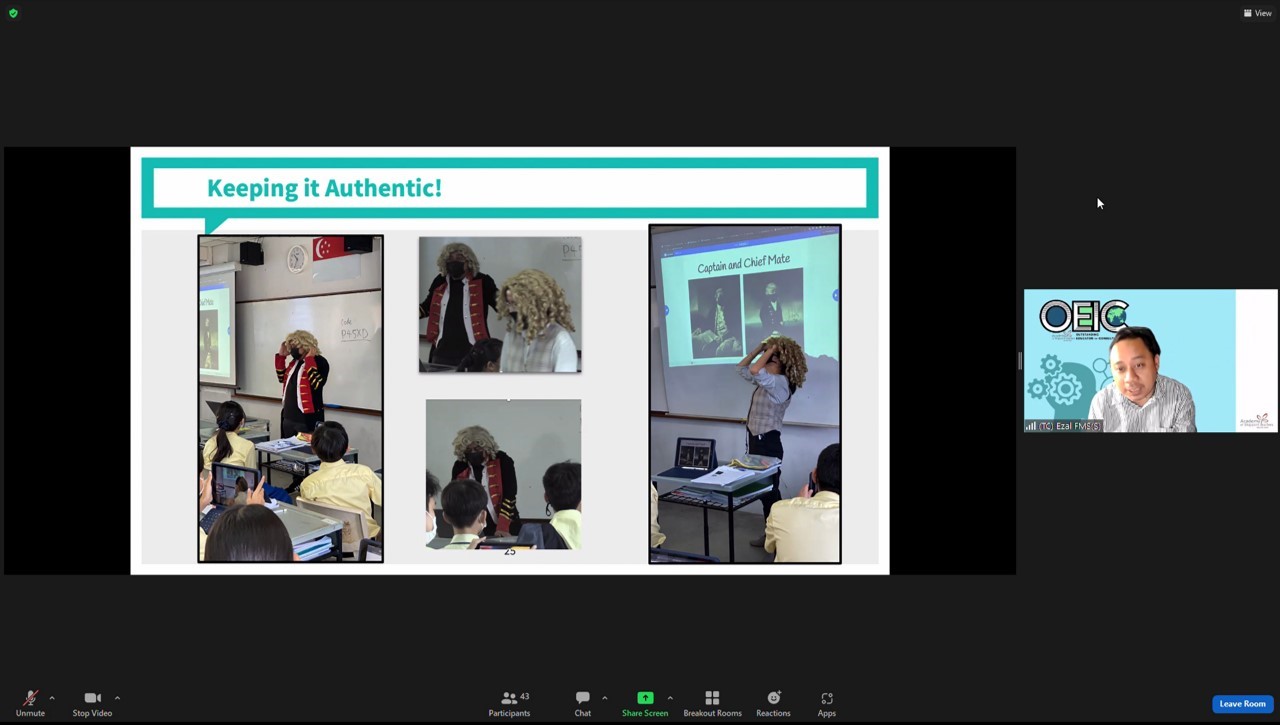
Next, Mr Miller shared how he had used the tools such as Flipgrid, Question Matrix, and HyperRubrics, in his classroom to give his students ‘voice’ and ‘choice’. Using the station rotation format, the workshop participants were given the autonomy to select two of the three tools that they would like to explore based on either the MOE Upper or Lower Secondary syllabus.
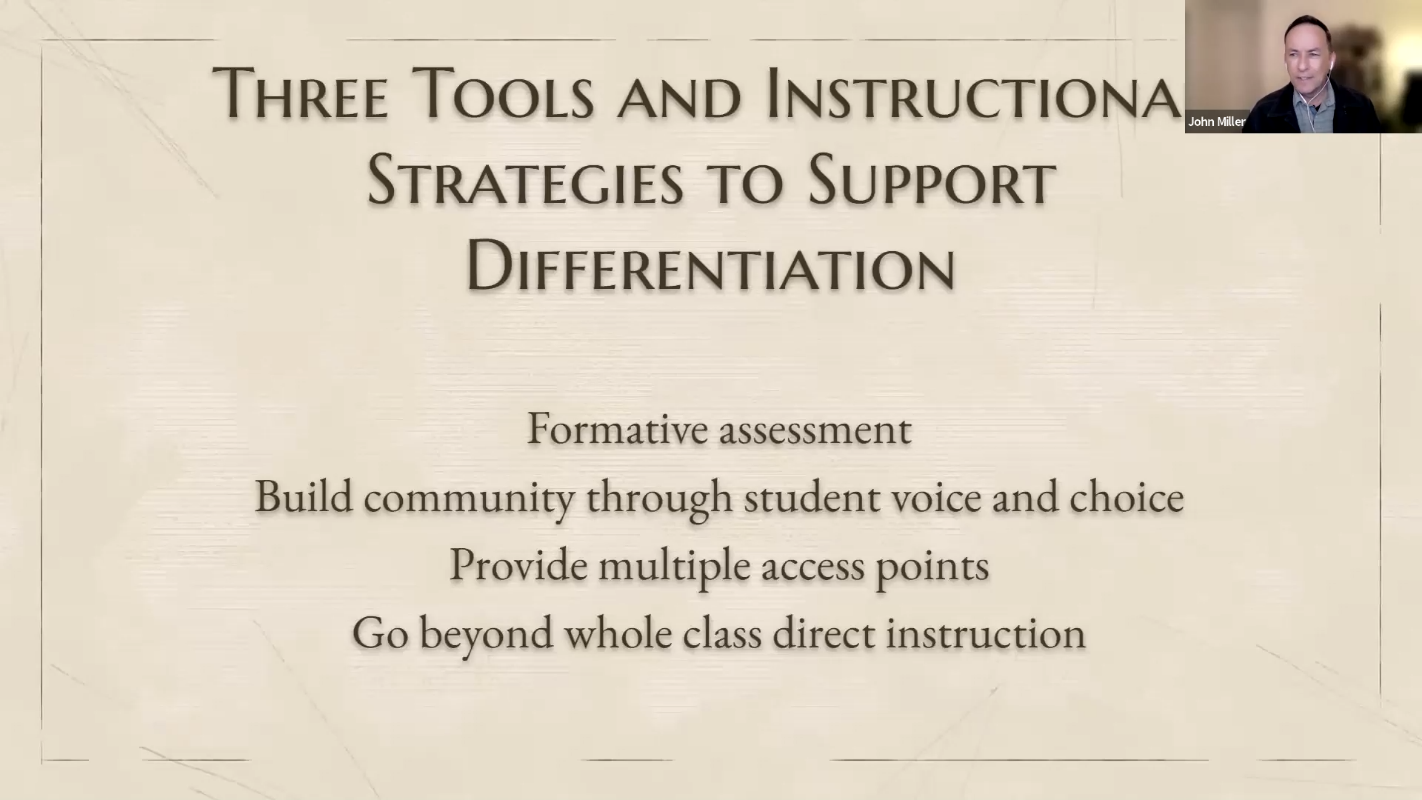
Many participants provided feedback that the strategies and tools were useful and they were inspired to employ the latter to spark curiosity and engage their students in their history classrooms.
Synchronous Workshop (Part 3) on 12 July 2022
Part 3 of the workshop focused on the application of strategies and approaches in local classrooms shared by Mr Miller earlier in Part 1 on 16 February 2022.
During the workshop, Mr Miller, Mr Yeo and the Teacher Collaborators shared their considerations and experiences in designing and enacting a DI lesson, based on the six principles of DI.
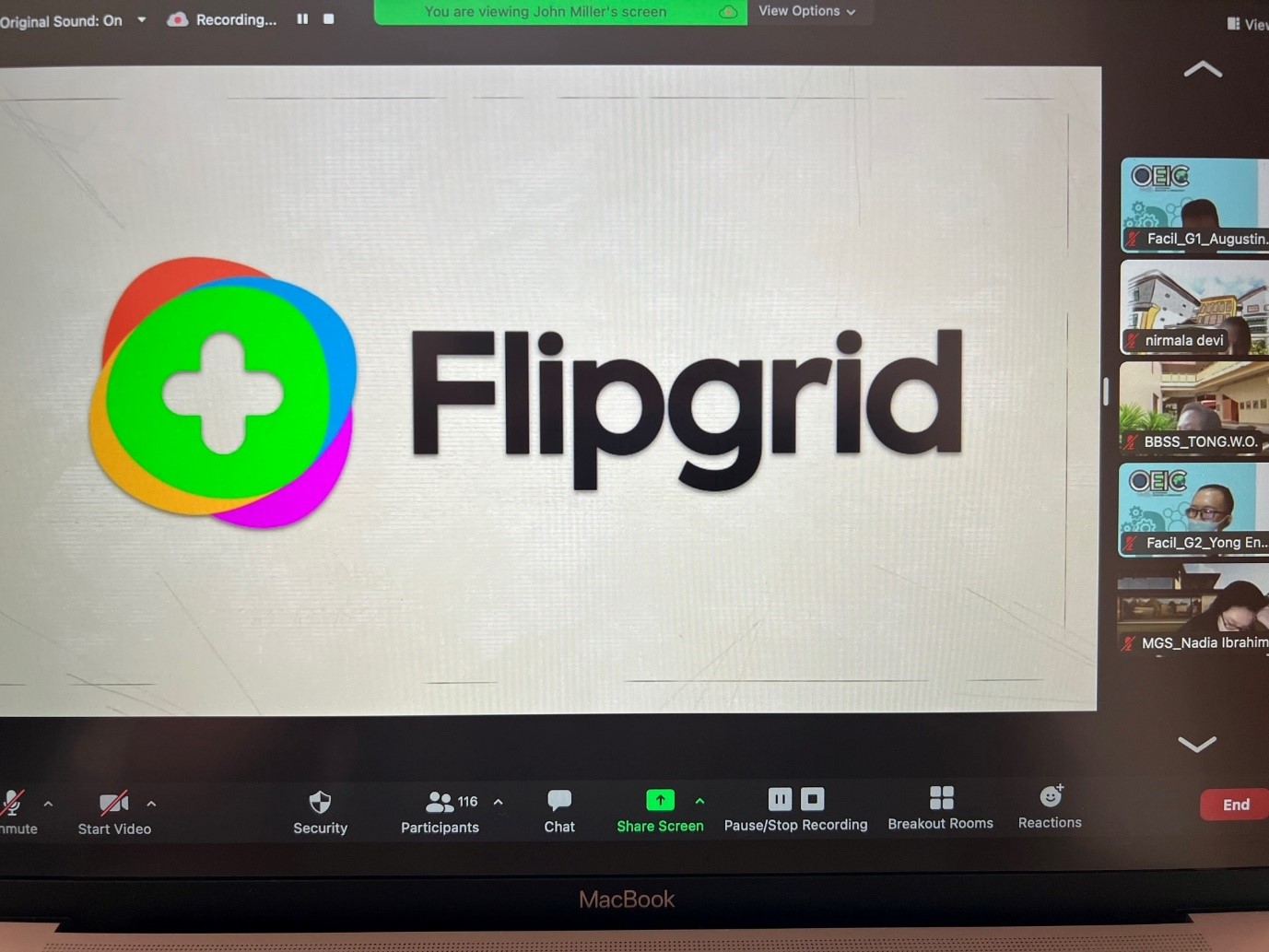
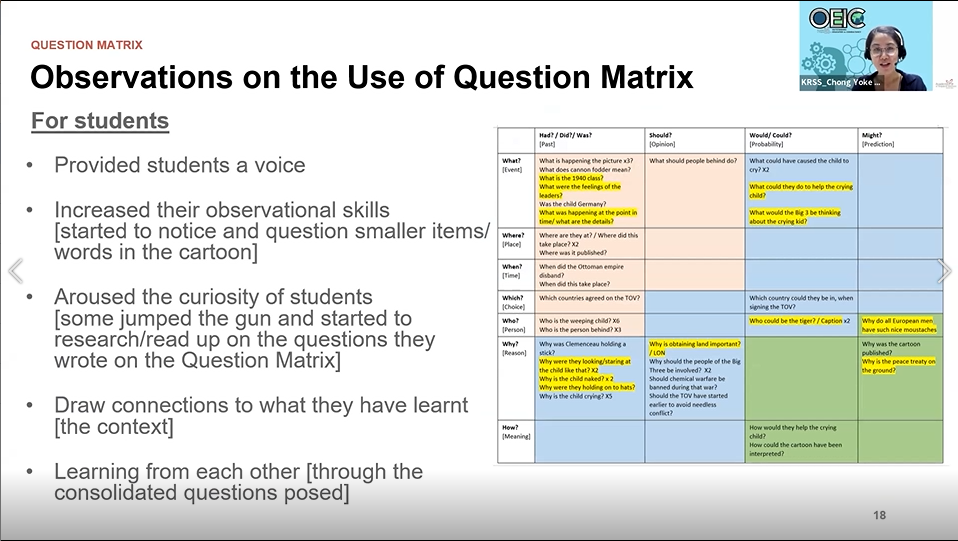
Through the concurrent breakout sessions, the participants also had the opportunity to learn more about the use of HyperRubric or Flipgrid in the history classrooms.
In the breakout session on HyperRubric, Mr Yeo shared about the possible uses of HyperRubric and invited teachers from different schools to share their resources and experiences in using HyperRubric with the participants.
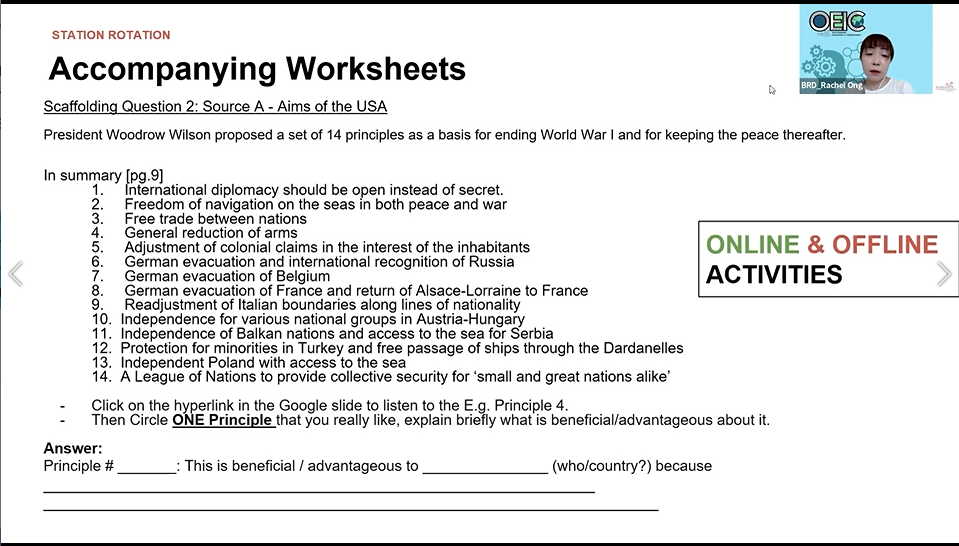
Simultaneously, in another breakout session, Mr Miller shared about the use of Flipgrid to encourage greater students’ voice. Ms Chong and Ms Ong also shared how they used Flipgrid to carry out differentiation-by-product, by providing more choices for students based on their interests.
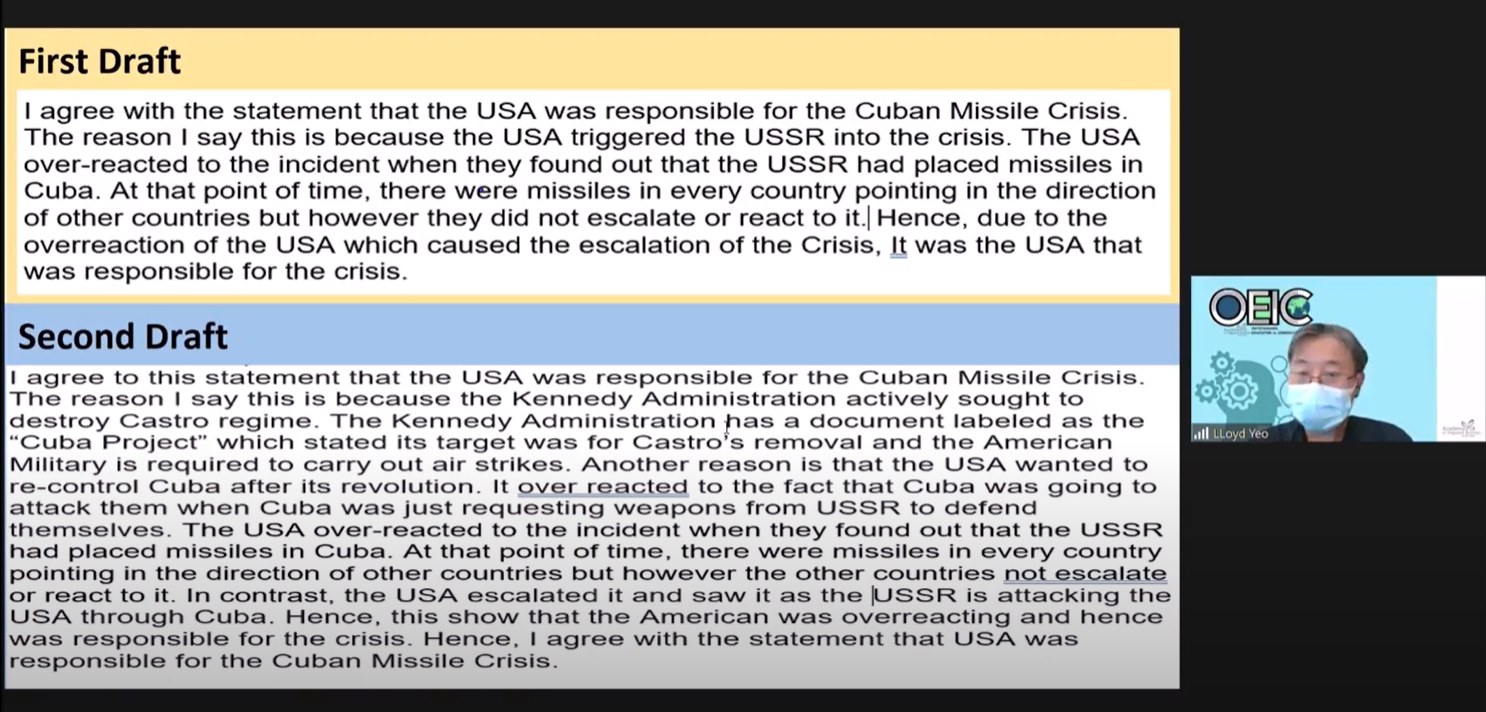
The participants provided feedback that that the strategies shared were applicable in their classrooms and the resources shared were helpful to them in designing their own DI lessons.
Symposium on 16 August 2022
Mr Miller’s sharing at the online symposium titled ‘Engaging with the Past in New Ways: Making History Relevant in a Modern Classroom’ allowed the participants to discover the innovative ways that students could use technology to gather, analyse, and share information, such as the production of documentaries and podcasts.. Participants also learnt how to support their students, who are interested in using the visual and performing arts, such as poetry and re-enactments, to express their historical inquiry learning, by applying the principles of good game design to nurture investigative groundwork, chronological thinking and the gathering of primary source evidence.
We are honoured to have the opportunity to interact and work with Mr John Miller through the OEIC Programme and we would like to thank him for his generosity in sharing his insights with our local educators.

